Introduction
Welcome to our ultimate guide on one of the most famous fruit, mangoes. Mangoes are not just delicious and juicy, but they also come packed with a variety of health benefits. In this complete blog, we’ll cover everything you need to know about this tropical fruit, from its nutritional content and health benefits to potential risks and special considerations for pregnant women and the elderly. So, let’s dive into the world of mangoes and discover why they are hailed as the ‘King of Fruits’.
What is a Mango?
Mango, often referred to as the “king of fruits,” is a tropical fruit that belongs to the drupe family. This delicious fruit originated over 4,000 years ago in South Asia, particularly in India and Southeast Asia, and has become a beloved fruit worldwide.
Mangoes are not only juicy and tasty but also highly nutritious. They come in various shapes, sizes, and colors, ranging from green, yellow, red, to orange. Each variety has its own unique flavor and texture.
Different Varieties of Mangoes
There are hundreds of varieties of mangoes, but some of the most popular ones include:
- Alphonso Mango – Often considered the best mango in terms of sweetness and richness. It is mainly grown in India.
- Haden Mango – Originally from Florida, it has a rich, sweet flavor with slight acidity.
- Ataulfo Mango – Known for its buttery texture and sweet, creamy taste. Commonly found in Mexico.
- Tommy Atkins Mango – This variety is widely grown and has a sweet, mild flavor. It’s also very fibrous.
- Kent Mango – Juicy and tender with a sweet taste and minimal fiber content.
Nutritional Content of Mangoes
Mangoes are not just delicious; they are packed with a variety of essential nutrients that can benefit your health. Let’s break down the nutritional content of this tropical fruit.
Vitamins and Minerals
Mangoes are a rich source of vitamins and minerals. They are particularly high in Vitamin C, which boosts the immune system, and Vitamin A, which is essential for eye health. Mangoes also contain Vitamin E, which is good for skin health, and Vitamin K, which helps with blood clotting.
Caloric Content
For those concerned about calorie intake, a cup of sliced mango (about 165 grams) contains roughly 99 calories. This makes mangoes a moderately low-calorie fruit that can easily fit into a balanced diet.
Macronutrients
Mangoes are primarily composed of carbohydrates, providing a quick source of energy. Here is the macronutrient breakdown per cup of sliced mango:
- Carbohydrates: 25 grams
- Protein: 1.4 grams
- Fats: 0.6 grams
The carbohydrates in mangoes include natural sugars, which can provide an energy boost.
Fiber
One cup of mango contains about 3 grams of dietary fiber. Fiber is crucial for digestive health and can help regulate blood sugar levels.
Antioxidants
Mangoes are full of antioxidants like beta-carotene and flavonoids. These compounds help fight free radicals in your body, reducing oxidative stress and potentially lowering the risk of chronic diseases.
Other Nutrients
- Folate: Important for DNA synthesis and repair.
- Potassium: Helps maintain healthy blood pressure levels.
- Magnesium: Supports muscle and nerve function.
Health Benefits of Mangoes
Below is a closer look at how this tropical fruit can enhance health:
Boosts Immunity
Mangoes are rich in Vitamin C and Vitamin A, both essential for a strong immune system. Vitamin C helps in the absorption of iron and the formation of collagen, while Vitamin A supports the mucous membranes, promoting better defense against infections.
Enhances Skin Health
Packed with antioxidants and vitamins, mangoes can contribute to glowing skin. Vitamin A and beta-carotene present in mangoes help repair skin cells and maintain healthy, youthful skin. The fruit’s hydrating properties also helps in keeping the skin moisturized.
Aids Digestion
High in dietary fiber, mangoes help in maintaining digestive health. Fiber helps in smooth bowel movements, preventing constipation. Additionally, mangoes contain enzymes such as amylases, which help break down carbohydrates and improve digestion.
Lowers Cholesterol
The presence of pectin, fiber, and Vitamin C in mangoes helps lower bad cholesterol levels in the body. This can reduce the risk of heart disease and promote better cardiovascular health.
Supports Eye Health
Mangoes are a good source of Vitamin A and beta-carotene, both crucial for eye health. Regular consumption can help prevent dry eyes and night blindness, ensuring your vision remains sharp and clear.
Potential Risks and Allergies
While mangoes are delicious and packed with nutrients, like any food, they come with potential risks and the possibility of allergic reactions.
Common Allergic Reactions to Mangoes
Mango allergies, although rare, can cause discomfort. One of the most common reactions is to the skin of the mango, which contains a substance called urushiol, the same compound found in poison ivy. Symptoms of a mango allergy may include:
- Itching and swelling around the lips, mouth, and throat
- Red, itchy rash (often around the mouth and face)
If you experience any of these symptoms after eating mangoes, it’s best to consult an allergist. In some cases, people who are sensitive can eat the flesh of the mango if they avoid contact with the skin.
Overconsumption Risks
Eating too many mangoes can lead to a few issues, generally minor. Here are some points to be aware of:
- Digestive Issues: Mangoes are high in fiber and eating them in large quantities can cause stomach cramps, bloating, and diarrhea.
- Blood Sugar Levels: Mangoes are sweet and contain natural sugars. While they have a moderate glycemic index, overeating them can spike blood sugar levels, a concern for people with diabetes.
- Weight Gain: Due to their natural sugar content, consuming mangoes in excess can contribute to weight gain if not balanced with other low-calorie foods.
Best Practices for Introducing Mango Into Your Diet
To safely enjoy the benefits of mangoes, consider the following tips:
- Start Slow: If you’re trying mangoes for the first time, start with a small portion to ensure you’re not allergic.
- Peel the Skin: Remove the skin to minimize the risk of an allergic reaction to urushiol.
- Moderation is Key: Enjoy mangoes as part of a balanced diet to avoid digestive issues and manage calorie intake.
Mangoes for Pregnant Women
Pregnancy is a crucial time when a woman’s nutritional needs are high, and mangoes can be a delightful addition to her diet. Rich in vitamins, minerals, and antioxidants, mangoes offer several benefits that make them an ideal choice for expecting mothers. However, there are some precautions to consider to ensure the safety and health of both mother and baby.
Nutritional Benefits of Mangoes During Pregnancy
- Rich in Folate: Folate is essential for fetal development, particularly during the first trimester. Eating mangoes can help reduce the risk of neural tube defects.
- High in Vitamin C: Mangoes are a great source of Vitamin C, which boosts the immune system and improves iron absorption, preventing anemia.
- Fiber for Digestion: Pregnancy often brings digestive issues like constipation. The fiber content in mangoes can aid digestion and promote regular bowel movements.
- Contains Vitamin A: Essential for the development of the baby’s eyes, skin, and immune system, Vitamin A in mangoes supports overall fetal growth.
- Natural Source of Energy: Carbohydrates in mangoes provide quick energy, which can be especially beneficial during the later stages of pregnancy when fatigue sets in.
Precautions When Consuming Mangoes During Pregnancy
- Moderation is Key: While mangoes are nutritious, they are also high in sugar. Overconsumption can lead to gestational diabetes or excessive weight gain.
- Ripeness Matters: Prefer naturally ripened mangoes over chemically ripened ones. Chemicals used for ripening can be harmful to both the mother and the baby.
- Wash Thoroughly: Always wash mangoes thoroughly to remove any pesticide residues and reduce the risk of infections.
Mangoes for Elderly People
Mangoes are not only delicious but also incredibly beneficial for elderly people. This tropical fruit is packed with essential nutrients that promote overall health, particularly as individuals age.
Health Benefits of Mangoes for Elderly People
- Rich in Antioxidants: Mangoes are high in antioxidants like quercetin, isoquercitrin, and fisetin, which help combat oxidative stress and reduce the risk of chronic diseases such as heart disease and cancer.
- Supports Bone Health: As people age, bone density tends to decrease. Mangoes are rich in vitamin K and calcium, which helps in maintaining strong, healthy bones and reducing the risk of osteoporosis.
- Boosts Immune System: The high vitamin C content in mangoes helps boost the immune system, making elderly individuals less susceptible to infections and illnesses.
- Aids Digestion: Mangoes contain dietary fiber, which promotes healthy digestion and helps prevent constipation—a common issue among older adults.
- Improves Skin Health: Aging skin can benefit from the vitamins A and E found in mangoes. These vitamins help maintain skin elasticity, reduce wrinkles, and give a natural glow.
How to Safely Include Mangoes in the Diet
- Start Slow: If mangoes are new to the diet, start with small portions to ensure there are no allergic reactions or digestive issues.
- Choose Ripe Mangoes: Ripe mangoes are easier to digest and generally sweeter, making them more palatable.
- Incorporate in Meals: Mangoes can be added to smoothies, salads, or enjoyed fresh. They can also be cooked into dishes like chutneys and sauces, adding a unique flavor and nutritional boost.
- Monitor Sugar Intake: While mangoes are healthy, they are also high in natural sugars. Elderly people with diabetes or blood sugar issues should consume them in moderation.
- Consult Healthcare Providers: Before making any significant changes to the diet, it’s advisable to consult with a healthcare provider, particularly if there are existing health conditions.
Delicious Ways to Include Mangoes in Your Diet
Mangoes are a versatile fruit that can be enjoyed in numerous delightful ways. Here are some easy and tasty methods to incorporate mangoes into your daily meals:
Fresh Mango Slices
The simplest way to enjoy a mango is to peel and slice it into bite-sized pieces. Fresh mango slices make for a refreshing snack or a perfect addition to your breakfast.
Mango Smoothies
Blend mango chunks with yogurt, milk (or a non-dairy alternative), and ice for a creamy, delicious smoothie. For added nutrition, throw in a handful of spinach or kale.
Mango Salsa
Add your meals with a mango salsa. Mix diced mango with red onions, bell peppers, jalapeños, cilantro, and a squeeze of lime. Perfect as a topping for grilled chicken or fish.
Mango Salads
Add a sweet twist to your salads by mixing mango pieces with greens, avocado, cherry tomatoes, and a light vinaigrette. The combination of flavors is sure to facinate your taste buds.
Mango Desserts
Mangoes can elevate your desserts. Prepare a luscious mango sorbet, or layer mango slices in a parfait with yogurt and granola. You can also use mango puree in cakes and muffins for a tropical flavor.
Dried Mango
Dried mango slices make for a convenient snack on the go. Look for options with no added sugar for a healthier choice.
Mango Chutney
Mango chutney is a sweet and spicy condiment (sauce) made with ripe mangoes, sugar, vinegar, and spices. It pairs excellently with Indian dishes and can be used as a spread or dip.
Mango Cocktails and Drinks
Make refreshing beverages like mango juice, mango lassi (a popular Indian yogurt drink), or even mango margaritas for a tropical flair to your parties.
Delicious Mango Recipes
Below are the most popular mango recipes with step-by-step instructions.
- Mango Lassi: Mango Lassi Recipe – Delicious Indian Drink in 5 mins
- Mango Sauce: Mango Sauce Recipe: Easy Homemade Sauce in 15 mins
- Mango Smoothie: Mango Smoothie Recipe – Easy Homemade Drink
- Mango Shake: Mango Shake Recipe – Easy Mango Milkshake 5 min
- Mango Pickle: Mango Pickle Recipe (Aam Ka Achar) Easy Homemade
- Aam Papad/ Mango Leather: Aam Papad (Mango Leather) – Easy Homemade Recipe
- Mango Ice Cream: Mango Ice Cream Recipe – Easy Homemade in 5 min
- Mango Salsa: Mango Salsa Recipe – Easy Side Dish in 5 mins
- Mango Chutney: Mango Chutney Recipe – Easy Mango Sauce 10 mins
- Mango Sauce: Mango Sauce Recipe: Easy Homemade Sauce in 15 mins
Frequently Asked Questions about Mangoes
Below are a few of the commonly asked questions about this delicious fruit.
Can I Eat Mango Skin?
Yes, mango skin is edible. It contains fiber and nutrients, but it has a tough texture and slightly bitter taste. If you’re sensitive to urushiol, a compound found in poison ivy, be cautious as mango skin could cause an allergic reaction.
Are Mangoes Keto-Friendly?
Mangoes are relatively high in natural sugars, which makes them less suitable for a strict keto diet. However, you can enjoy them in moderation if you are following a less restrictive low-carb diet.
How Many Mangoes Can I Eat in a Day?
Moderation is key. Eating one mango a day can provide ample nutrients, but consuming too many can spike blood sugar levels and add extra calories. Balance your fruit intake with other food groups.
Do Mangoes Help with Sleep?
Yes, mangoes contain Vitamin B6, which helps produce serotonin, a precursor to melatonin that regulates sleep. Enjoy a mango as part of your evening snack for potential sleep benefits.
Are Mangoes Safe for Diabetics?
Mangoes have a high Glycemic Index (GI), so diabetics should eat them in moderation and monitor their blood sugar levels. Opt for small portions and pair mangoes with protein or fiber-rich foods to slow sugar absorption.
Can Pregnant Women Eat Mangoes?
Absolutely! Mangoes are rich in vitamins A and C, and folate, which are beneficial during pregnancy. However, pregnant women should consume them in moderation and consult their healthcare provider if unsure.
Are Dried Mangoes Healthy?
Dried mangoes are nutritious but often higher in sugar and calories than fresh mangoes. Choose unsweetened varieties and consume in moderation to enjoy their health benefits without overloading on sugar.
Do Mangoes Help in Weight Loss?
Mangoes are low in calories and high in fiber, which can help you feel full and satisfied. Including them as part of a balanced diet can support weight loss, but avoid overconsumption.
References
To ensure the accuracy and reliability of the information provided in this blog, I have referred to reputable sources. Below are the references used:
- National Mango Board: Comprehensive information on mango varieties, nutritional content, and health benefits. https://www.mango.org
- USDA FoodData Central: Detailed nutritional profile of mangoes. https://fdc.nal.usda.gov/index.html
- WebMD: Health benefits and potential risks of consuming mangoes. https://www.webmd.com
- American Pregnancy Association: Nutritional guidelines for pregnant women, including the benefits of mangoes. https://americanpregnancy.org
- National Institutes of Health (NIH): Studies on the antioxidant properties and other health benefits of mangoes. https://www.nih.gov
- Harvard T.H. Chan School of Public Health: Information on dietary practices for elderly individuals. https://www.hsph.harvard.edu
**Disclaimer:** The information provided in this blog is based on our best knowledge and research on the subject. However, it is always recommended to consult with a qualified nutritionist or doctor for personalized advice specific to your individual health needs and conditions.

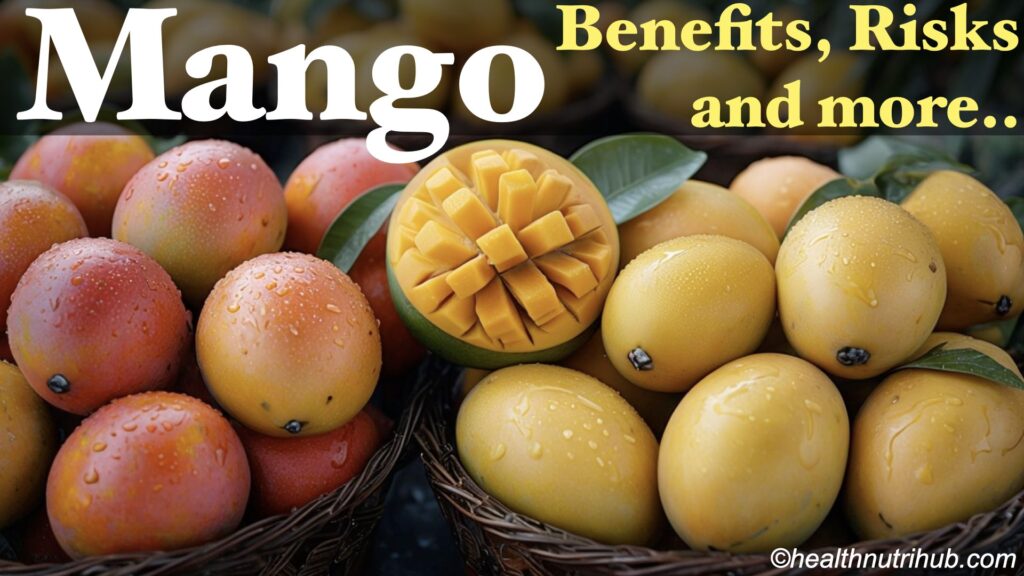
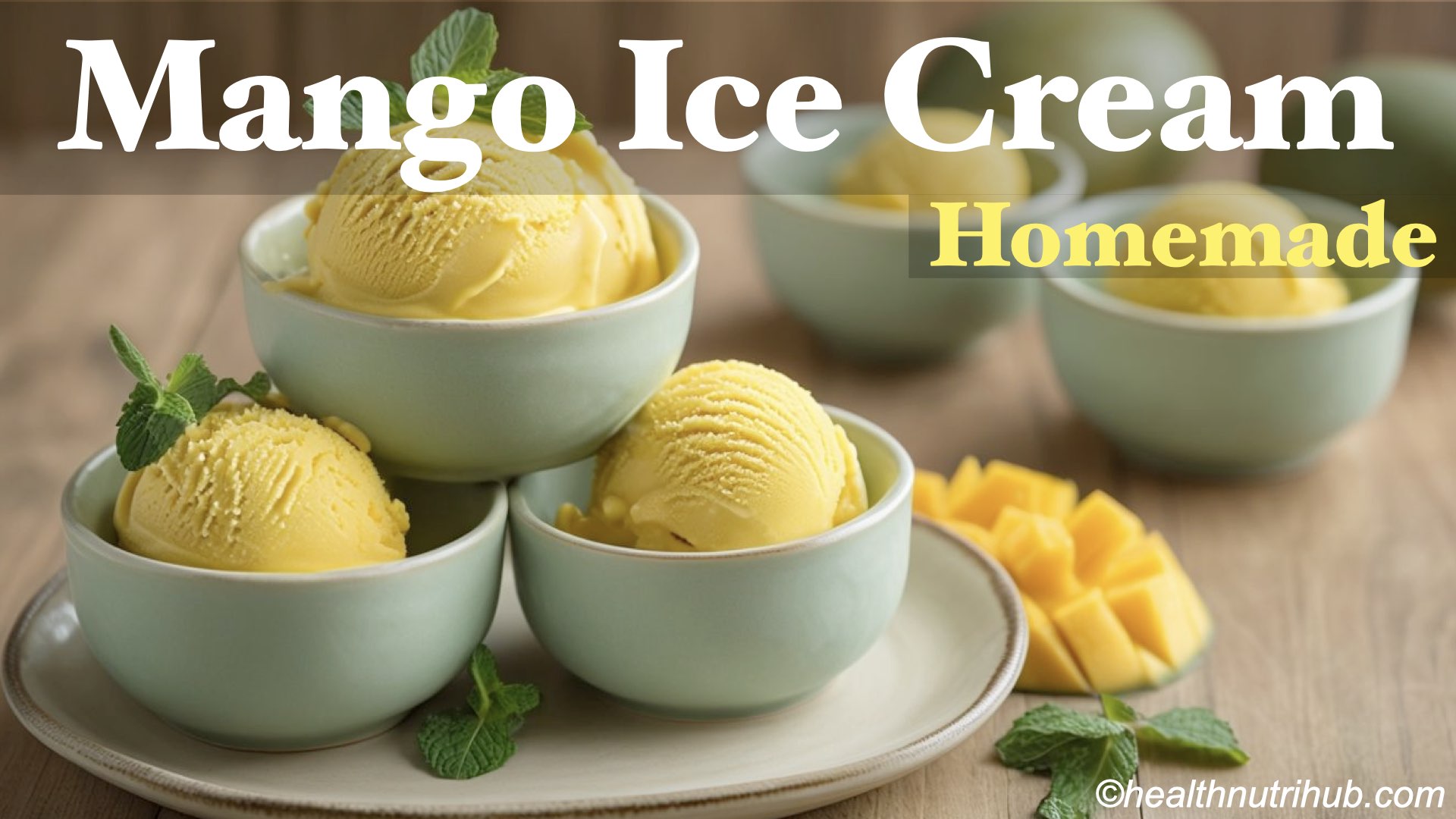
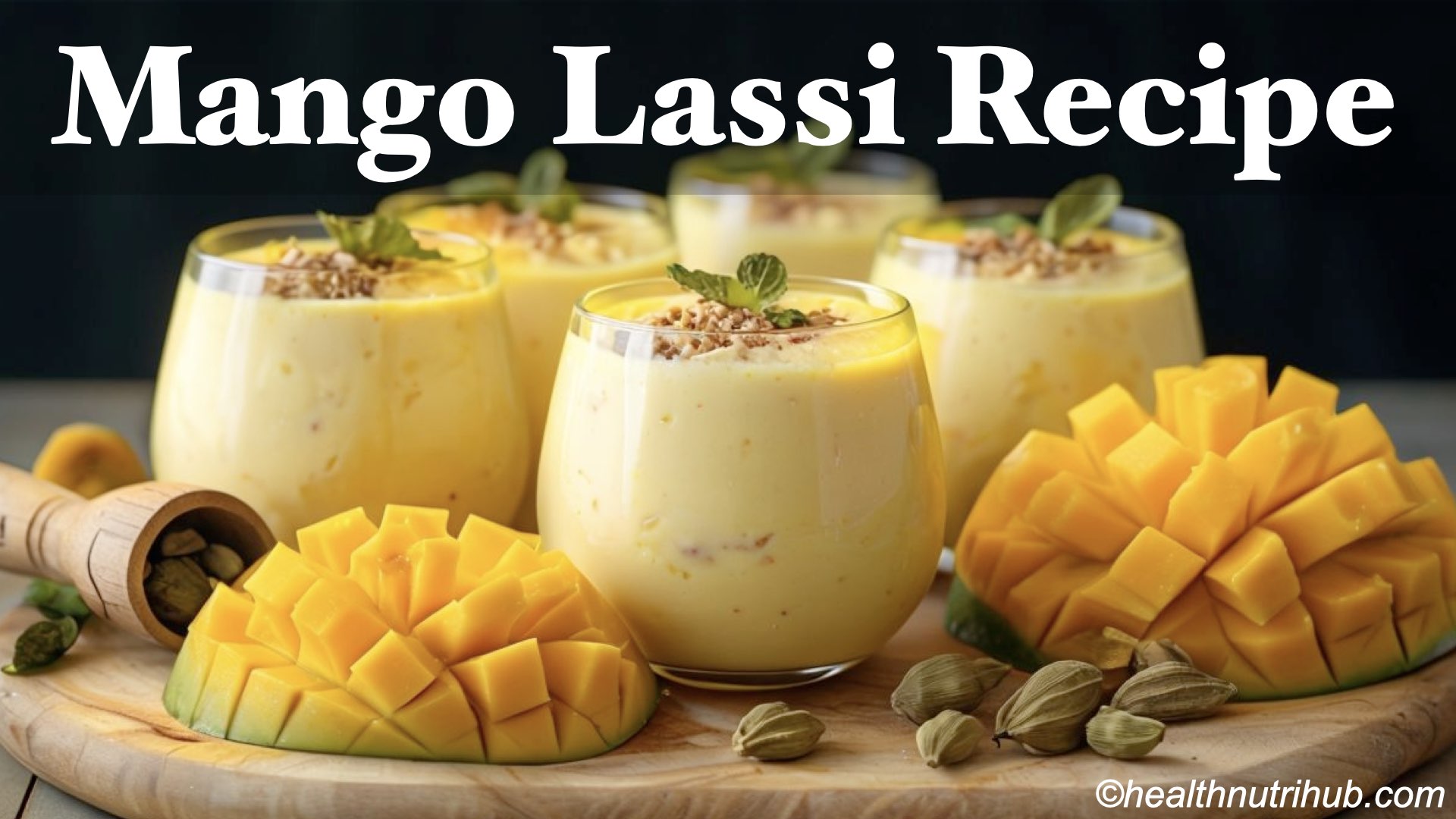
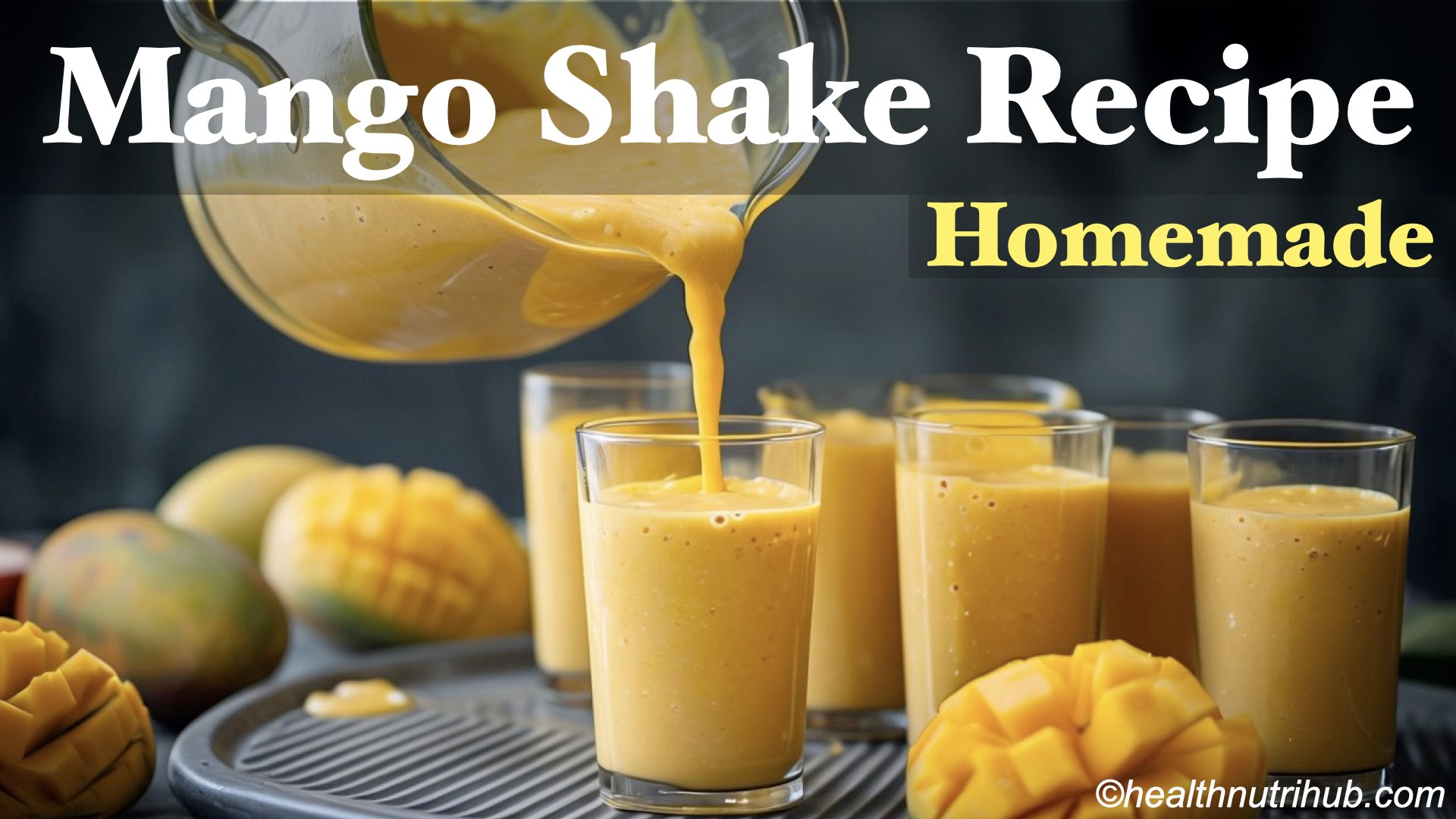
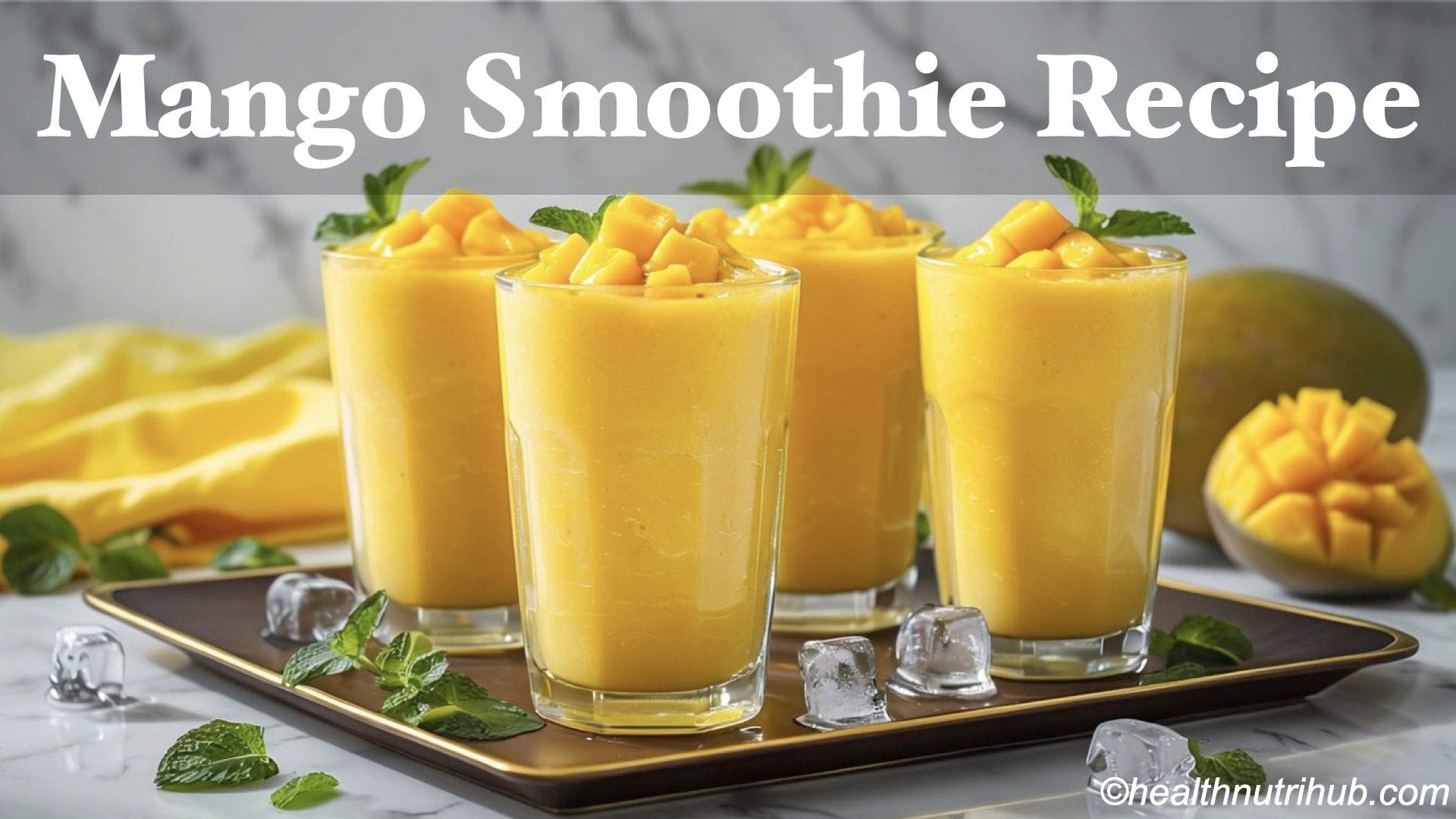
Pingback: Mango Lassi Recipe - Delicious Indian Drink in 5 mins (Homemade)
Pingback: Mango Smoothie Recipe - Easy Homemade Drink
Pingback: Mango Shake Recipe - Easy Mango Milkshake 5 min
Pingback: Mango Pickle Recipe (Aam Ka Achar) Easy Homemade
Pingback: Aam Papad (Mango Leather) - Easy Homemade Recipe
Pingback: Mango Ice Cream Recipe - Easy Homemade in 5 min
Pingback: Mango Salsa Recipe - Easy Side Dish in 5 mins
Pingback: Mango Chutney Recipe - Easy Mango Sauce 10 mins
Pingback: Mango Sauce Recipe: Easy Homemade Sauce in 15 mins